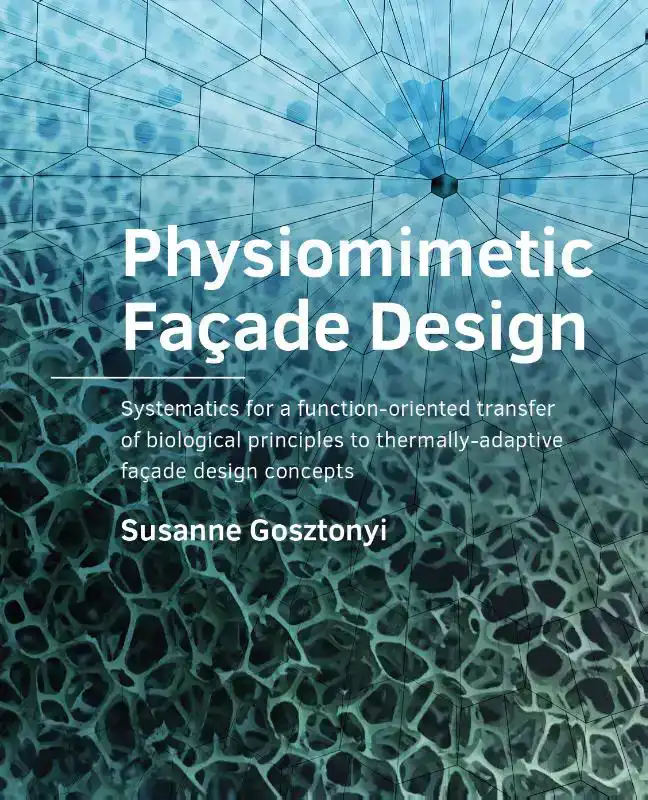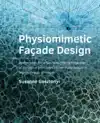- Engels
- Study
- nature & science
- technische wetensch.
- bouwkunde
- PHYSIOMIMETIC FACADE DESIGN
GOSZTONYI, SUSANNE
PHYSIOMIMETIC FACADE DESIGN
29,95incl BTW
Vertrouwd sinds 1927
Persoonlijke aandacht en advies
Vanaf 17,50 gratis verzenden NL & BE
Meer dan 150.000 artikelen online
Omschrijving PHYSIOMIMETIC FACADE DESIGN
Adaptive facades are designed to actively regulate the exchange of material and energy flows and thus improve the balance between comfort and energy consumption. However, their technical complexity leads to higher development efforts, maintenance and
costs, and ultimately fewer implementations.
Embedded adaptive functions could be an opportunity to reduce these drawbacks. If embedded adaptivity is to work within a design, the particularities of geometry and material arrangements must be con
sidered. Nature offers fascinating models for this approach, which frames the objectives of this doctoral dissertation. The dissertation examines both adaptive facades and biology criteria that support a function-oriented transfer of thermo-adaptive
principles in the early design stage. The research work discusses whether the technical complexity can be reduced by biomimetic designs and which role geometric design strategies play for thermo-adaptive processes.
The research work is divi
ded into three phases, following the top-down process in the discipline biomimetics, supplemented by methods from product design and semantic databases. The first phase is dedicated to the analysis of the contextual framework and criteria of facades
aiming at thermal adaptation.
Further, transfer systematics are developed that guide the analysis and selection process. In the second phase, analogies in biology are collected that appear suitable. Selected examples are examined to identify and
systematically describe their functional principle. Two exemplary descriptions herald the third phase, in which functional facade models are created and evaluated.
The result of this research work provides a conceptual approach to generate
function-imitating biomimetic facade designs, so-called physio-mimetic facade designs.
costs, and ultimately fewer implementations.
Embedded adaptive functions could be an opportunity to reduce these drawbacks. If embedded adaptivity is to work within a design, the particularities of geometry and material arrangements must be con
sidered. Nature offers fascinating models for this approach, which frames the objectives of this doctoral dissertation. The dissertation examines both adaptive facades and biology criteria that support a function-oriented transfer of thermo-adaptive
principles in the early design stage. The research work discusses whether the technical complexity can be reduced by biomimetic designs and which role geometric design strategies play for thermo-adaptive processes.
The research work is divi
ded into three phases, following the top-down process in the discipline biomimetics, supplemented by methods from product design and semantic databases. The first phase is dedicated to the analysis of the contextual framework and criteria of facades
aiming at thermal adaptation.
Further, transfer systematics are developed that guide the analysis and selection process. In the second phase, analogies in biology are collected that appear suitable. Selected examples are examined to identify and
systematically describe their functional principle. Two exemplary descriptions herald the third phase, in which functional facade models are created and evaluated.
The result of this research work provides a conceptual approach to generate
function-imitating biomimetic facade designs, so-called physio-mimetic facade designs.
Specificaties
- MerkBK Books
- GroepTECHNISCHE WETENSCH (950)
- Barcode9789463665063
- LeverstatusActief
Reviews
0.0/5.0
Gemiddelde uit 0 reviews
Meest behulpzame reviews
Nog geen reviews geschreven


